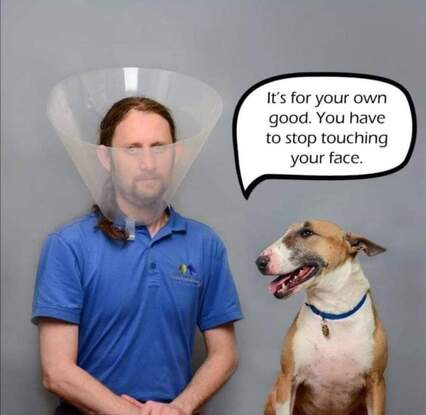Resources
Educating yourself psychologically can facilitate your own repair and recovery process, and the resources below may help with this.
Additional resources are added over time...so please come back again soon!
Additional resources are added over time...so please come back again soon!
Romantic Relationships
- Read Terry Real's blog, and when you are done, step up to one of his books - he doesn't pull any punches and his ideas are really powerful.
- Read up on Gottman's Relationship Blog - lots of good information to help couples improve their relationships, all fully grounded in gold-star research. Then try one of his books too.
- Listen to Dr. John Gottman talking about his ideas on Making Relationships Work. Here he talks about his model, The Sound Relationship House, which describes the elements present in couples he refers to as relationship 'masters' and absent in couples he refers to as relationship 'disasters.' This recorded presentation is in four, 10 minute parts. The link here takes you to the first part and you will find the three parts that follow shown to the right of the YouTube player.
- Explore why saying 'sorry' is not enough when apologising.
- Learn how to apologise and why it matters - a podcast from Brene Brown, featuring Harriet Lerner.
- Read Harriet Lerner's nine essential ingredients of a true apology and brush up your apology making skills.
- How well do you know your partner? Take Gottman's quiz to find out.
- Learn how eating disorders can disrupt and bring distance between partners.
- Reconnect with someone you love or create new, more meaningful bonds with these 36 questions - you'll find the audio and transcript of this podcast here.
- Learn how to navigate conflict and other difficult conversations when neurodiversity affects your relationship.
- Listen to Ari Tuckman talk about ADHD and Couples Therapy - although this targets therapists, it may offer valuable insights nontheless if you or your partner have been diagnosed with ADHD.
Kids, Parenting, and Families
- Set up a daily family ritual of doing something together while keeping your brains active at the same time, by completing the seven free quizzes offered by The New Daily. They are great fun!
- Explore how to help kids manage grief and loss.
- Understand why dads bonding with babies and kids is so important!!
Individuals - Creating Calm and Positivity, Better Understanding and Strengthening Your Sense of Self
- Read absolutely anything and everything on Harriet Lerner's blog - she is a legend - and then read her books - they are BRILLIANT.
- Following on from the point above...read some of Irvin Yalom's books while you are at it, such as Staring at the Sun, and Lying on the Couch (a 'teaching' novel). He is considered one of the most revered therapists of our time. A truly amazing therapist and educator.
- Next, read these fascinating books by Louann Brizendine about the female and separately, male brains - really interesting!!
- Maintain perspective by doing Dr. Martin Seligman's Three Blessings Exercise. This exercise has been scientifically shown to bring significantly improved positive perspective into people's lives as quickly as within one week of starting the practice. Look here to understand how to judge if it is working for you.
- Learn about Trauma and the Nervous System: A Polyvagal Perspective - YouTube Clip. This is an excellent, basic introduction and overview of how trauma and chronic stress affects our nervous system and how those effects impact our health and well-being. Much of the content is based on the groundbreaking work of Stephen Porges and his Polyvagal Theory. To learn more about trauma recovery and nervous system health resources, please visit The Trauma Foundation (www.thetraumafoundation.org), the Polyvagal Institute (www.polyvagalinstitute.org), or Dan Dana's website https://www.rhythmofregulation.com.
- Practice Stanley Rosenberg's Basic Exercise to calm yourself if anxious or bring you back online if you feel immobilised. It's simple and quick (1-2 mins), and helps you stay out of fight/flight and instead feel regulated. Better still - try this every day.
- Bring happiness and positive structure into your life by linking to Berkeley's Greater Good Science Center monthly Happiness Calendar.
- Take a moment to better understand intrusive thoughts.
- learn about and implement three of the best ways to manage anxiety.
- Consider four ways that dancing makes you happier.
- Grab some ideas of what to do when you never feel good enough.
Intimacy and Sex
- Learn about the Six-Second Kiss - from the Gottman Relationship Blog
- Explore Sandra Pertot's articles about libido and intimacy difficulties - she is one of Australia's leading thinkers on sex and intimacy.
- Explore Barry McCarthy's ideas about couple sex styles - which style is right for you and your partner?
EMDR
- Learn about EMDR and how it may help you.
- Look at a video that shows how EMDR works.
And Some More (otherwise known as "Simply Too Hard to Categorise")
- Take a look at this online opinion piece from The Guardian which talks about how society’s understanding of mental health issues locates the problem inside the person and ignores the politics of their distress.
For Workplaces
- Read my own and others' advice on reconnecting with colleagues for the festive season in an article featured in both The Age and the Sydney Morning Herald.
For Children and Parents
- Tips for coping with coronavirus anxiety, including talking about it with children.
- COVIBOOK, a PDF book aimed at helping children under the age of 7 years, to understand what is happening. It is available in 21 languages.
- Get help engaging your kids (or even you) to exercise indoors by tuning in each day to P.E. with Joe on his Body Coach TV channel on YouTube. Read more about what it's been like to join in with this online kids exercise sensation here.
- Sharing custody is hard enough without coronavirus. Here are some tips for co-parenting during the pandemic.
- Here you'll find extensive resources related to children and parenting during COVID-19.
For Adults and Relationships
- Here is a free group session, run by Dr. Phil Manfield, to provide relief from pandemic-related memories.
- How to make birthdays meaningful during a pandemic.
- How journaling can help you in hard times.
- Here psychologists talk about loneliness and isolation during COVID-19.
- These podcasts will help you escape the news while you're stuck at home.
- From Gottman's Blog - Keeping it Together While Social Distancing.
- Here are 24 dates you can try out at home.
- Consider these six daily questions to ask yourself in quarantine.
- Here are seven tips to make working from home easier.
- Take an online meditation class with Tara Brach (USA).
For Others
- Use this calling card to offer help to your neighbours, particularly those who are elderly or otherwise might benefit from a helping hand or just a chat (at least 1.5m apart, of course!).




